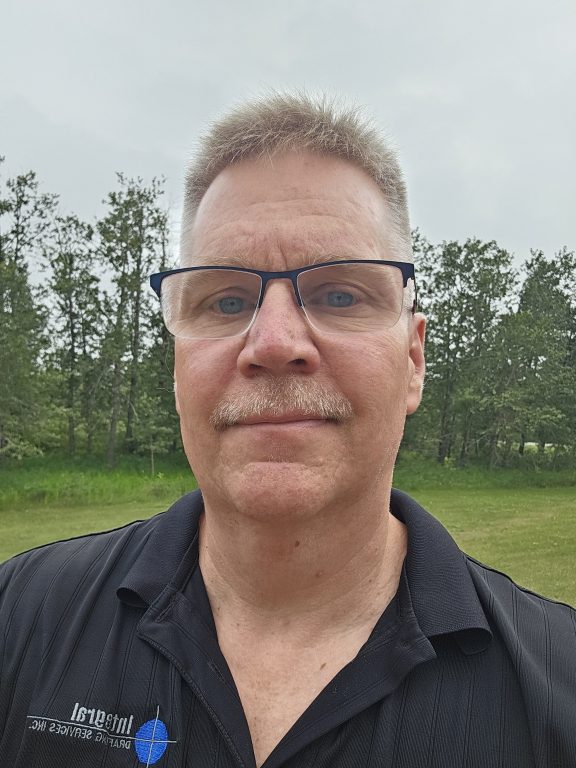- Home
- Member Profile
- Scott Holtzman, Engineering Licensee
Member Profile
Scott Holtzman, Engineering Licensee
August 6th, 2025
Please tell us about your personal background. 
I am originally from Regina, Saskatchewan and currently live just east of White City. I graduated from Luther College High School in 1986, took some university classes and found myself working as a security guard in the Cornwall Center and the downtown area. This experience taught me about dealing with people and how to act in certain situations. I enrolled in the Instrumentation Engineering Technology program in 1995 and graduated in 1998. I began working in the electrical consulting field until 2001 when I worked as a Process Operator for Praxair and CRC. I started my own business in electrical-instrumentation design and drafting as I wanted to maintain my AutoCAD skills. Then I was fortunate enough to take my business full time in 2008 due to the potash boom in Saskatchewan at that time. I am still in operation today providing quality electrical-instrumentation design and drafting services for various clients in many different industrial sectors within Western Canada.
Why did you choose engineering, and what is your area of specialty?
My uncle was an electrician, my cousin has his own electrical service company, and I’ve always found electrical concepts interesting. I was taking a 5th class Steam Engineering course out of my own interest and there was a section on instrumentation and boiler controls. It was very interesting, I did some research and found out they offered an instrumentation diploma course at Moose Jaw, so I applied and was eventually accepted in 1995.
Where and when did you study, and how would you describe that experience?
Instrumentation Engineering Technology was the most academically challenging thing I have done in my life, in that new concepts came to us every day, you had to be disciplined and understand time management to make it through. It was no joke. The program at the time was being recognized as an Accredited Technology program, so additional classes were added which added to the challenge.
What are some of the most interesting, rewarding, and/or challenging experiences you have had?
The most challenging was with my first position right after graduation as a junior technologist with a local electrical consulting firm, which was acquired by KGS in later years. I was tasked with electrical design rather than instrumentation design, so the learning curve was steep and frustrating at times, but it’s through experiences like that where we grow in our profession.
The most rewarding experience is when we solve design problems for clients that reduce costs and improve efficiency.
The most interesting experience was working on green field projects and being able to work on the entire design from conception to construction.
What have you appreciated most about your engineering journey?
Everyday seems to bring something new, either a new challenge or a new project and it’s the people that I have worked with that have made all of this manageable. Working as a team, sharing ideas and coming up with a solution, and then execution.
Any mentors or role models you’d like to tell us about? What insight or wisdom did they impart?
I have had many mentors throughout my career, but to mention a couple: Randy Burns (Retired) taught me that design details matter, and when you create a design it must be understandable by everyone involved. Mike Wright (Retired) taught me about PLC control systems within the potash industry in Saskatchewan. Whenever I had a question, he would sit me down and not only answer it but go through the theory of it. I thank and appreciate everyone who I have worked with throughout my career as I have taken a little something from everyone to create how I do things today.
What activities or interests do you enjoy outside of your professional pursuits?
I enjoy the outdoors, working out at a local gym, and hiking. I have a passion for football and was fortunate enough to be a defensive line coach for my son’s minor football teams for 8 years. Generally, just spending time with family and friends.
Anything else you’d like to add?
Engineering to me is like putting a 100-piece puzzle together, in that you have to organize the pieces logically and most importantly ensure you have all 100 pieces, and if you don’t you have to acquire them asap and then piece them all together correctly as quickly as possible. It’s simplistic I know, but it’s my general thought process.